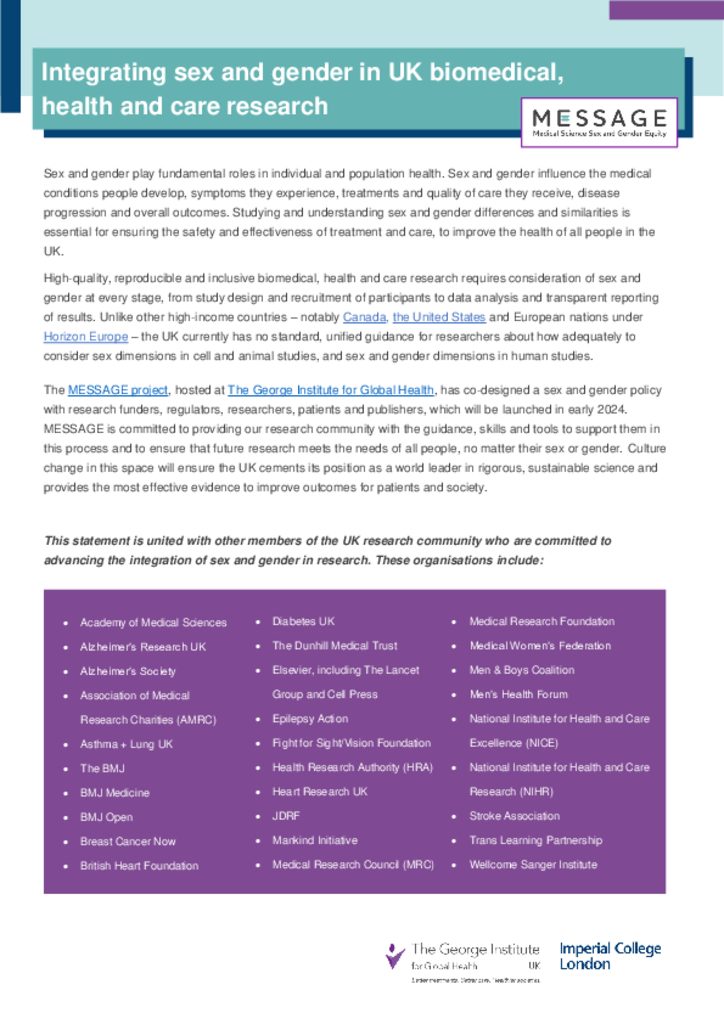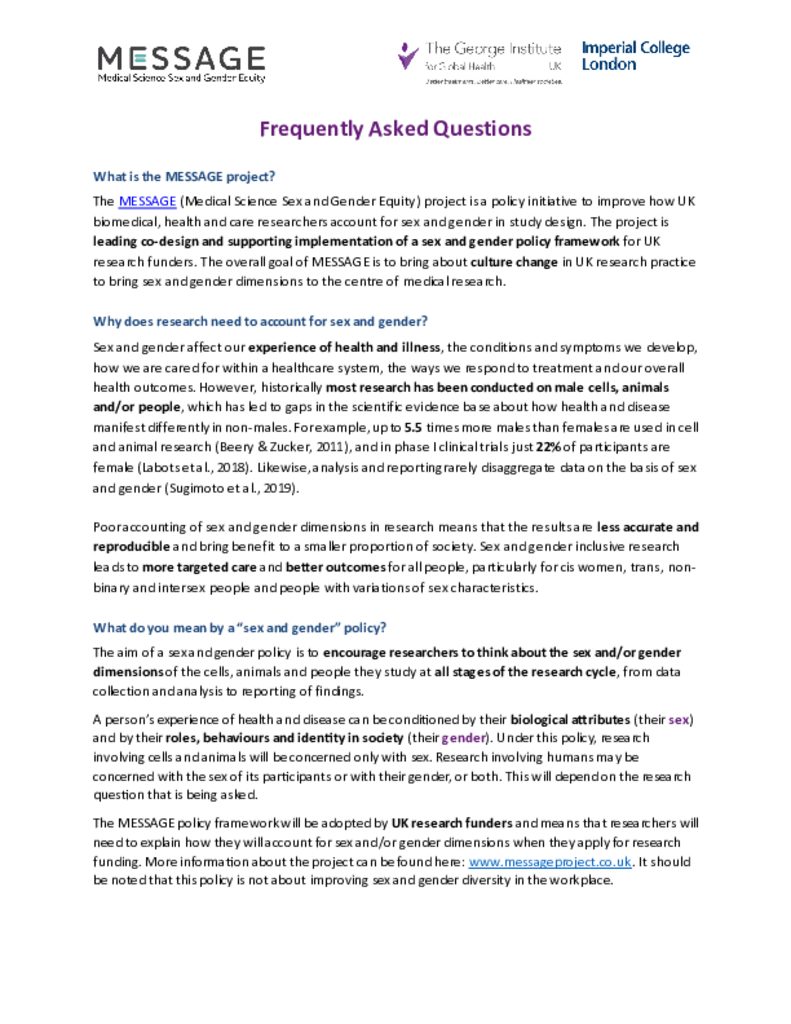
Top UK biomedical research funders support first-of-its-kind sex and gender policy in major sector turning point
Twenty-nine organisations across the UK medical research community published a statement of intent today signalling their support for the introduction of dedicated sex and gender policies for biomedical, health and care research, in collaboration with The George Institute for Global Health’s Medical Science Sex and Gender Equity (MESSAGE) project.
Signatories to the statement contribute an estimated £4.1 billion per year to UK medical research and include the National Institute for Health and Care Research (NIHR), the Medical Research Council (MRC) and the Association of Medical Research Charities (AMRC), via its 151 member charities. Members of the AMRC that have voiced their independent support include Diabetes UK and Breast Cancer Now. The statement is also supported by academic publishers The BMJ and Elsevier, which includes The Lancet and Cell Press.
High-quality, reproducible and inclusive medical research requires consideration of sex and gender at every stage, from study design and participant recruitment, to data analysis and transparent reporting of results. While the UK’s MRC published a policy on embedding diversity in research design earlier this year, overall the UK lags far behind other high-income countries in development and implementation of sex and gender policies – notably Canada, the United States and European nations under Horizon Europe. The UK has no standard, unified guidance for researchers about how to consider sex dimensions in cell and animal studies, and sex and gender dimensions in human studies.
Over the past year, the MESSAGE project, funded by the Wellcome Trust, has collaborated with research funders, regulators, researchers, patient and public groups, academic publishers, and the Department of Health and Social Care to co-design a sex and gender policy framework for the UK biomedical research sector. Signatories will now work to adapt and integrate these best-practice recommendations within their institutions.
Robyn Norton, Founding Director of The George Institute, Professor of Global Health at Imperial College London and co-principal investigator on the MESSAGE project, said, "When we began this work in 2021 we were shocked to find that none of the UK’s 17 largest medical research funders, nor its four major regulators, had policies in place to ensure that sex and gender dimensions are considered and addressed in funded research projects. We are proud that many of these groups are now among those who are committed to improving scientific rigour and equity in biomedical, health and care research"
"Today marks a huge advance for the UK research community. We are establishing a new gold standard for sex and gender in science, which will help provide the most effective evidence to improve outcomes for all patients".
Sex and gender influence the conditions people develop, the symptoms they experience, the treatment they receive, and their overall outcomes. However, the current evidence base has relied on studies conducted primarily on male cells, male animals, and men, contributing to persisting standards of worse care and worse outcomes for women. Diagnostic criteria developed using male-biased research mean that women are more likely than men to be misdiagnosed when experiencing a heart attack, and women and girls with autism or ADHD often struggle to receive a correct and timely diagnosis.
Sex and gender gaps in the evidence base exist across all areas of medical research, from oncology and osteoporosis to diabetes and dementia, affecting men as well as women. Understanding sex and gender differences, as well as where similarities exist, is therefore essential to ensure that treatment and care is safe and effective for all people.
Dr Kate Womersley, Research Fellow at The George Institute and Imperial College London, psychiatry doctor in NHS Lothian, and co-principal investigator of MESSAGE said, "Sex and gender have been an afterthought in UK medical research for far too long. This statement of intent demonstrates sector-wide unity on the need to prioritise and address these historic biases in health now. We look forward to further collaboration with research funders, regulators and publishers to continue this progress, while keeping patients and clinical outcomes central to our vision."
In 2024, the project will launch the co-designed MESSAGE sex and gender policy framework. Two further Policy Labs with the stakeholder group will set out a roadmap for sector-wide implementation and evaluation of policies, and key educational materials to upskill the research workforce will be published on the MESSAGE website: https://www.messageproject.co.uk







